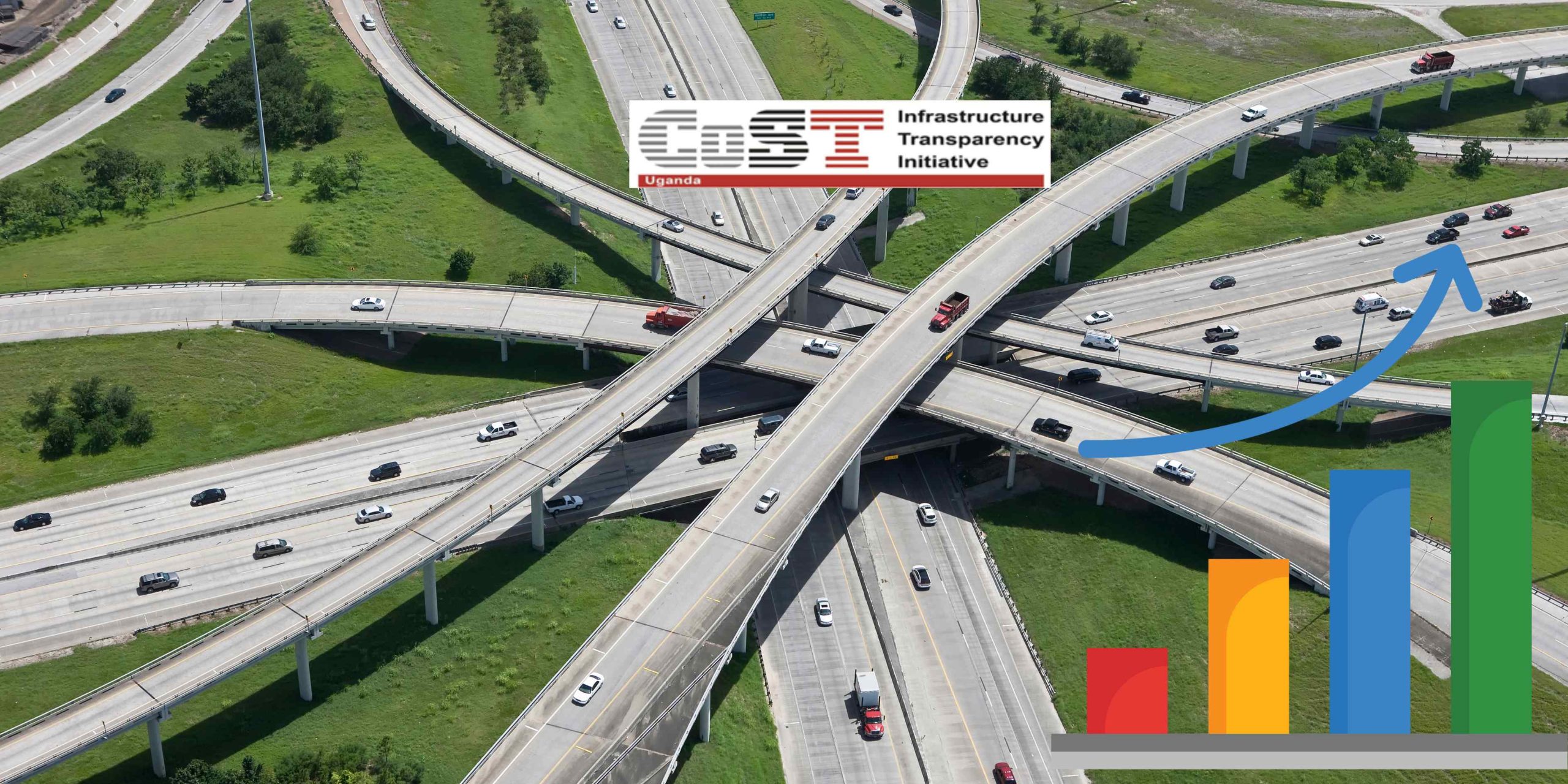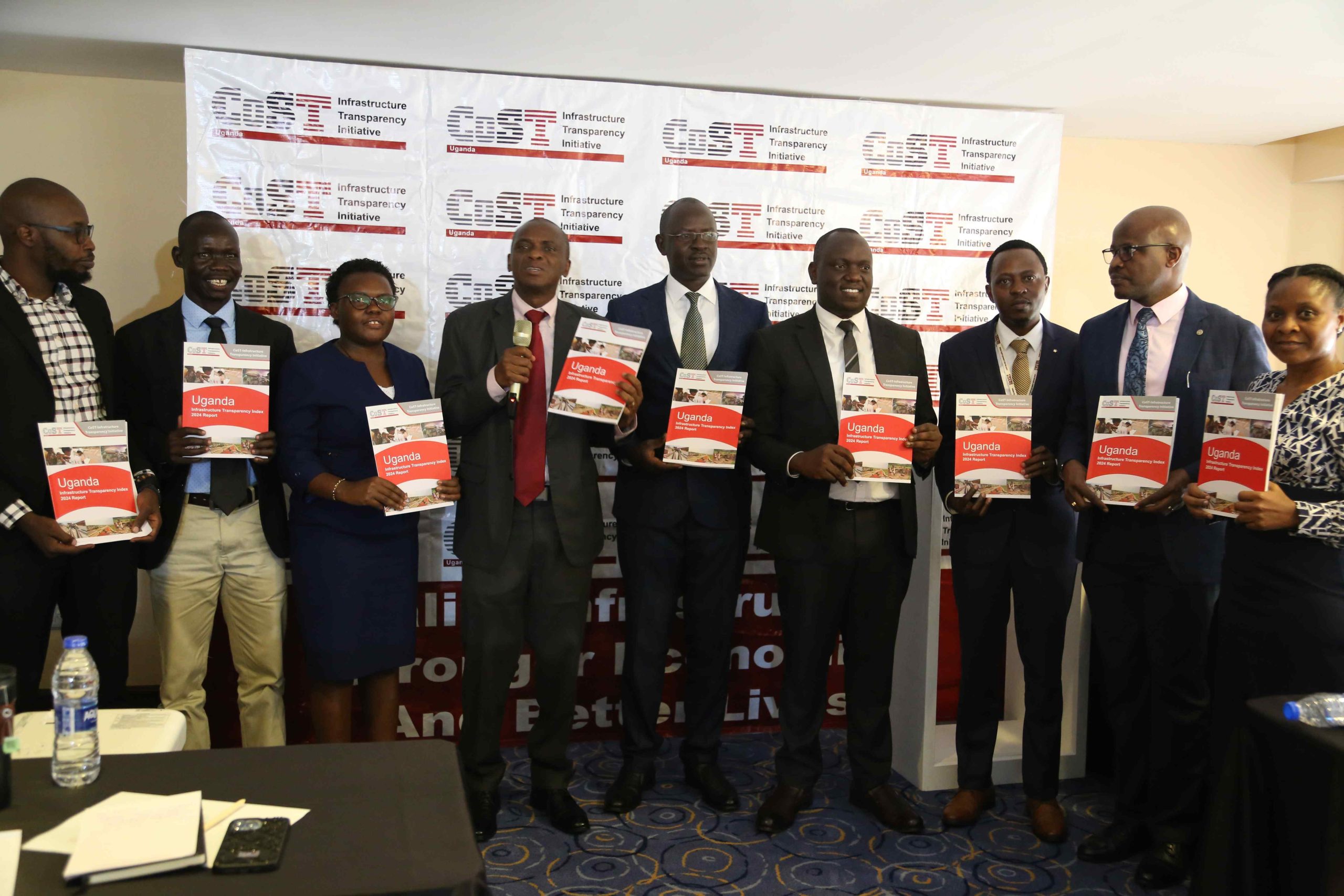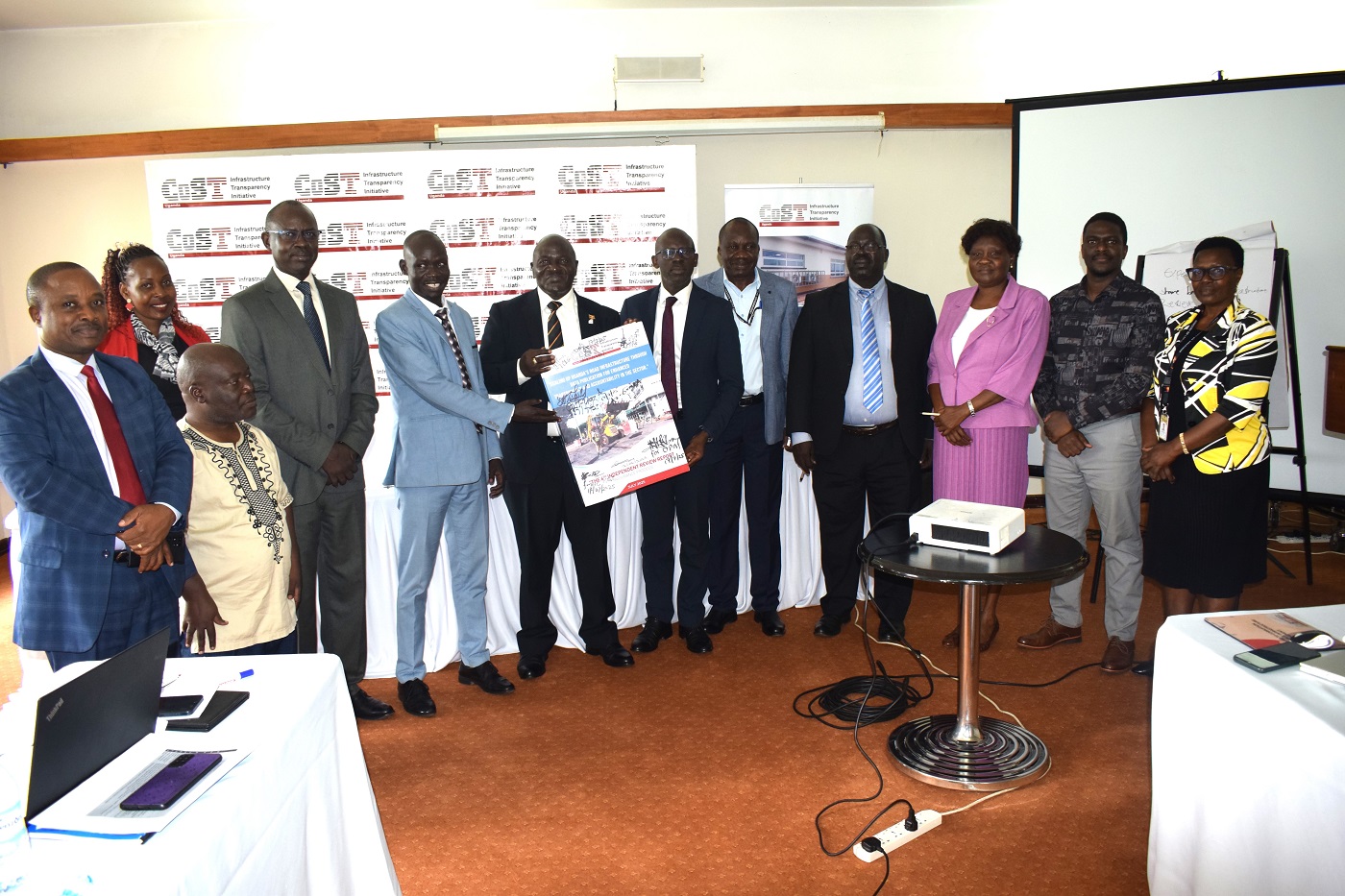
In partnership with the Ministry of Local Government (MoLG) and the Africa Freedom of Information Centre (AFIC), CoST Uganda through the championship of the Hon. Minister Gen. Edward Katumba Wamala -Ministry of works and transport- launched its 6th Independent Review Report on the 17th of July 2025 at the Kampala Golf course Hotel. The launch was attended by the Hon. Minister -Ministry of Works and Transport, representatives from Ministry of local government, office of the prime minister, CAO ‘s from the five districts-Gomba, Nwoya, Kabarole, Kitgum, Gomba, media among others.
CoST-Infrastructure Transparency Initiative conducts Independent Reviews- formally called Assurance process to Improve infrastructure data openness and accountability by assessing level of disclosure and validity of data disclosed to raise critical concerns and performance issues to stakeholders.
The report focused on a study for 62 infrastructure projects four programs under Ministry of local government including.
1. Project for the Restoration of Livelihood in Northern Uganda (PRELNOR) 68% 2. Local Economic Growth Support -LEGS 35%
3. Market Agricultural Trade Improvement Project -MATIP2 88%
4. Rural Development and Service Delivery Project. RUDSEC 40%
Since the focus was more of road projects, 10 road projects under PRELNOR and LEGS programs were selected for deeper analysis in districts of Kitgum, Nwoya, Gomba, Kabarole, and Ntoroko.
The report highlighted Ministry of local Government’s overall Transparency score of 59%, a notable improvement from 33% in 2017 indicating progress in proactive (58%) and reactive (60%) data disclosure. The best-performing programs included MATIP-II (88%) and PRELNOR (68%). MATIP and RUDSEC projects recorded no delays, unlike LEGS. However, with challenges, including cost overruns (notably 86% in Gomba Kyai-Kyabagamba road), poor contract enforcement, weak asset management, and limited community engagement. Kitgum performed best in the overall assessment -disclosing more project data.
Voices From The Launch
Hon. Gen. Edward Katumba Wamala, Minister of Works and Transport
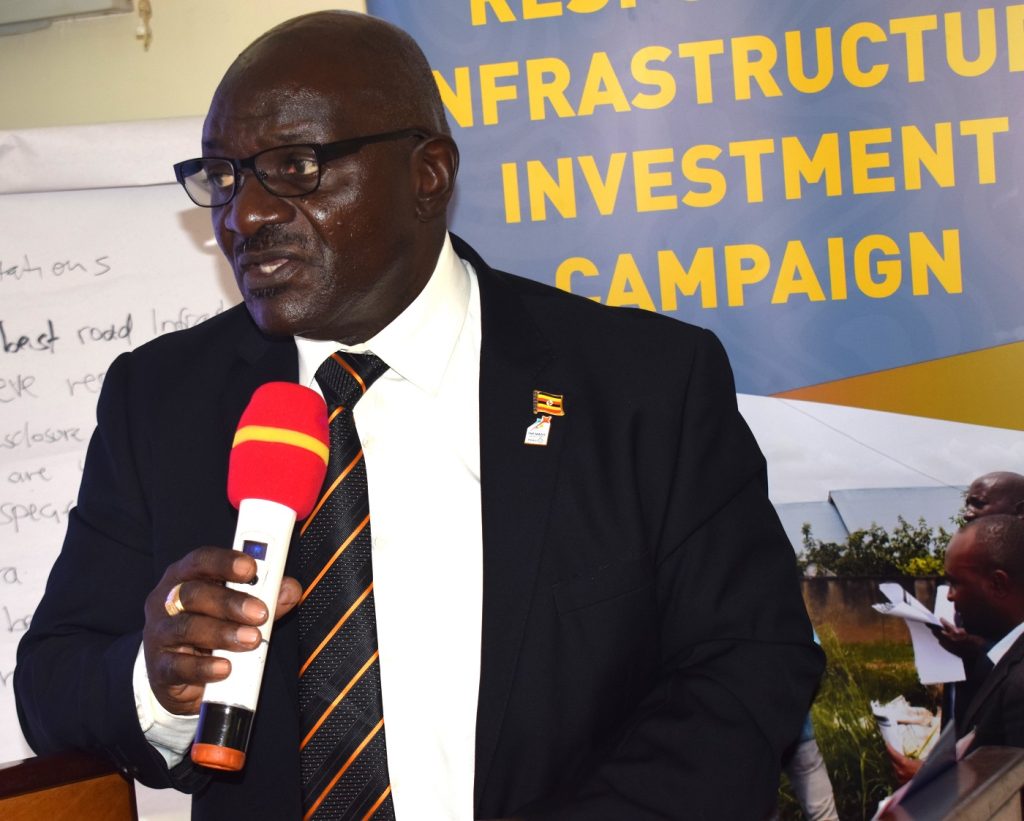
“CoST Uganda serves as a third eye for transparency. I strongly with results for this study. I urge 30% of any new project budget must go to maintenance. I will engage other ministries to address these gaps, especially around road infrastructure project design, maintenance and sustainability.”
Mr. Johnson Musinguzi, Assistant Commissioner, PICD, MoLG
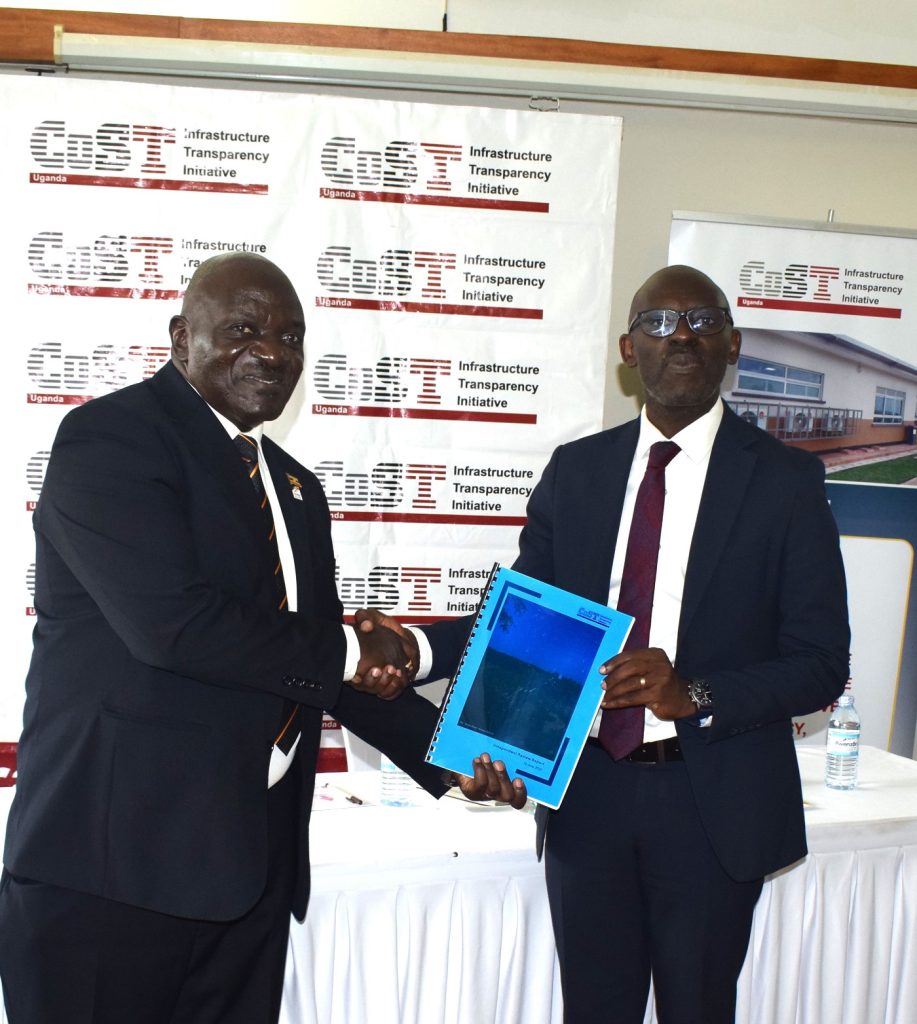
“The findings offer critical insights and areas for improvement. As a Ministry, we are committed to using this evidence to enhance transparency and impactful service delivery. I urge you all to publish data on different platforms to avoid data inaccessibility. I commend the CAOs from all five districts for their cooperation, together we uplift transparency in the sector”
Mr. Geoffrey Odong (CoST Uganda Manager)
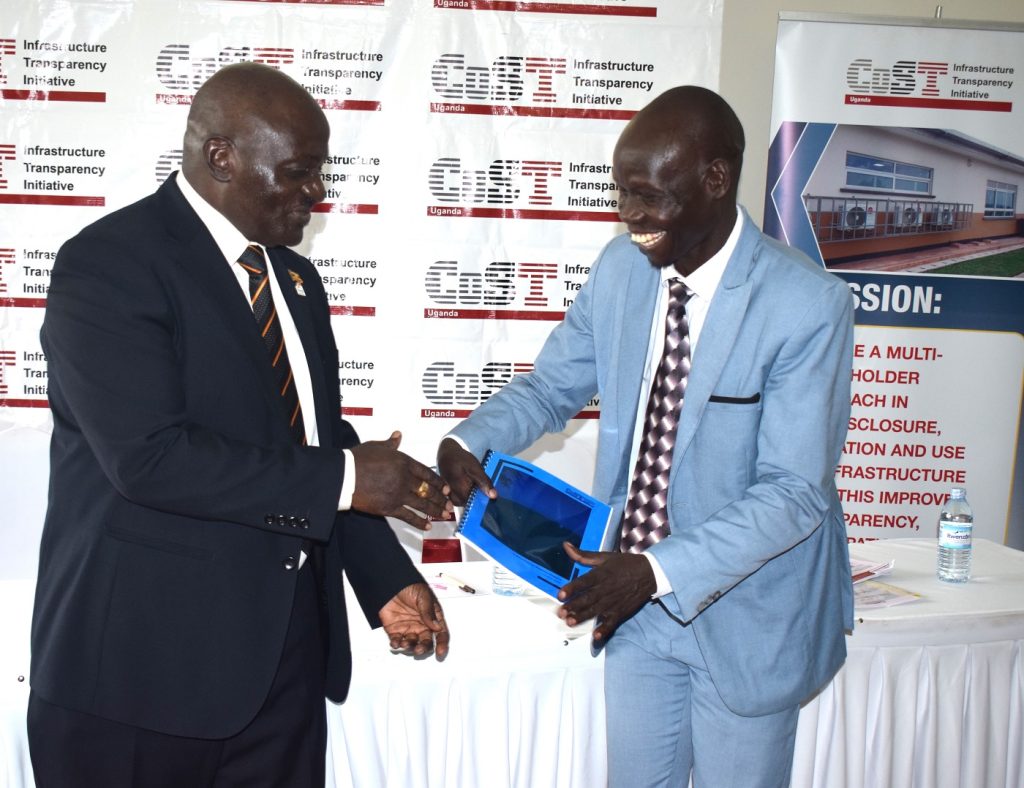
“This report shows progress at MoLG. I appreciate the cooperation of everyone especially Ministry of local government for taking part in this exercise. Let’s adopt the Open Contracting for Infrastructure Data Standards (OC4IDS), prioritize infrastructure data disclosure and road maintenance planning for sustainability.”
Eng. Seninde, Chief Engineer’s Representative, Ministry of Works and Transport
“Regional material testing labs exist—we must ensure contractors provide State of Trade certificates to enforce standards.”
Ms. Abyeto Stella, CAO, Kitgum district
“Kitgum greatly benefited from PRELNOR roads, which are still in good condition and helpful to communities. We are ready for more projects but need additional funding and road projects.”
Derrick Muzoora , Independent Consultant
“We must institutionalize information archiving, not rely on individuals. Also, government needs to focus not just on project delivery, but the service life & sustainability of roads as key milestones.”
Eswilu Donath, CAO Gomba district
“We appreciate the minister, MoWT and his team for tarmacking roads, but how do we deal with sustainability of these roads?”
Key Findings:
i. Weak disclosure and transparency levels. MoLG was under maintenance for long period ii. Persistent project cost overruns I the LEGS projects
iii. Weak asset management and maintenance culture: Including outdated asset registers and insufficient funding for maintenance
iv. Insufficient institutional and technical capacity (poor post-construction handover processes. Limited involvement of local communities contributed to project scope changes v. Weak contractual enforcement mechanisms. The 2 programs(PRELONOR & LEGS) lacked comprehensive binding provisions-quality assurance, environmental and social safeguards
vi. Delayed programme implementation (PRELNOR by 13%, LEGS by 135%, MATIP-II and RUDSEC registered no delays)
vii. Inadequate contractual safeguards in LEGS and PRELNOR projects. viii. Limited post-construction planning and maintenance structures.
ix. Reactively, There was Weak project completion disclosures at (22%) despite strong disclosure at tendering (99%) and identification (95%).
Key Recommendations:
i. Encouraged MoLG to improve its internal information management systems and utilize the eGP and GPP to archive and disclose data on infrastructure projects and ensure website maintenance takes a shorter time. Institutionalize knowledge transfer
ii. Strengthen its contract management framework by institutionalizing mandatory, multi-level technical reviews of contract designs and Bills of Quantities (BoQ) prior to tendering to avoid variations during implementation
iii. Strengthen asset management units responsible for inventory, maintenance scheduling, and asset condition monitoring. include life-cycle costing, operation, and maintenance plans as part of feasibility studies. Develop maintenance plans.
iv. Offer capacity building to teams routinely
v. Revise MoLG standard contract templates for infrastructure projects to include comprehensive and binding provision, define contractor obligations, reporting requirements, and compliance measures.
vi. Strengthen procurement planning capacity through regular procurement training for staff.
vii. Establishing/Improving Regional laboratories for testing concrete work;
viii. Enhance digital data systems (eGP, GPP) and transparency.
ix. Revise standard contract templates to enforce compliance.
Our Call:
We call upon Ministry of Local Government and all government entities to publish infrastructure project data on GPP, eGP and their internal platforms with guidance of the OC4IDS standards and Data points to promote Accountability, Transparency and citizen participation in the sector. The 6th Independent Review Report demonstrates meaningful strides in transparency, especially under MATIP-II and PRELNOR, while calling attention to critical gaps in maintenance planning, record-keeping, and contract management in other projects especially Under LEGS.
Conclusion
CoST Uganda commends Ministry of Local Government for improved transparency and support especially Mr. Johnson Musinguzi, Asst. Commissioner PICD for his outstanding leadership, commitment, reviews and coordination in driving completion of this report. The event closed with renewed sector-wide commitment to transparency, data-driven governance, and quality infrastructure delivery as CoST Uganda reaffirmed its role in monitoring uptake of recommendations and supporting reforms in infrastructure transparency.
Read a full 6th Independent report via; https://www.cost.or.ug/downloads/cost-ugandas-6th independent-review-report-2025/
Article by Violet Jolly, Project Assistant, CoST Uganda


